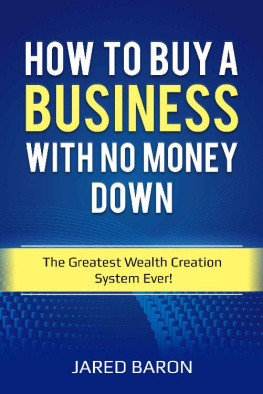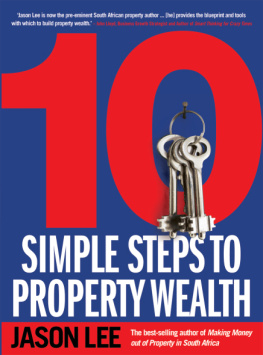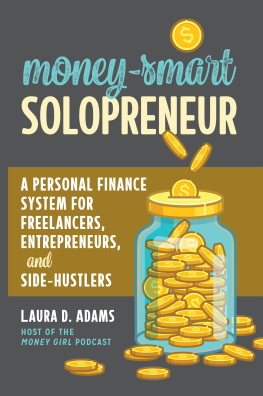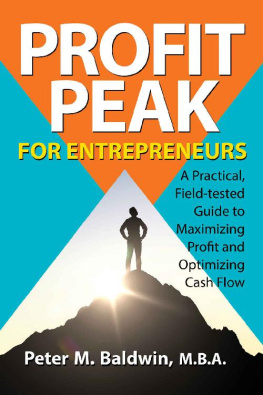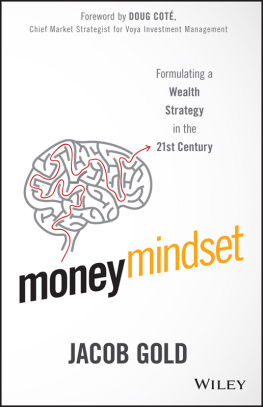No Money Down (NCD) or Leverage Buyout (LBO) is one of the most excitingfinancial tools. It has created more millionaires and billionaires than anyother wealth creation system known to man. Some of the names that practiced LBOare J.P. Morgan (investments), Vanderbilt (railroads), Buffett (stocks), Gates(software), Branson (business), Trump (property) and many others too numerousto mention. The System adapts to small transactions of $100,000 - $200,000 upto acquisitions of many millions and billions. This is because LBO is alsoknown as Creative Financing, which is used on each acquisition that could beworth hundreds of thousands or more when taken over by the LBO practitioner.The methodology has three other names other than Leverage Buyout. It is alsoknown as Management Buy Out, Management Buy In and No Cash Down.
This book represents the cumulative knowledge of top LBO negotiators and topentrepreneurs over the past two centuries. In LBO there are literally hundredsof financial tools or options to draw on and tens of thousands of sources. Yetmost people have maybe two or at the most three financial tools to use in theirnegotiations to close a deal. This book has been written with the sole idea inmind of giving aspiring LBO practitioners an idea of the huge selection offinancial options and sources at their disposal so that the requirements ofboth the seller and the buyer can be satisfied on as many deals as possible.
As you read the book I will ask you to put aside your misconceptions of what ittakes to achieve business success. Buying or selling a business is usually aonce in a lifetime experience for most people. This book will show you how touse No Money Down strategies by using the all-important structuring of theFinancial Pyramids so important in all LBO acquisitions. Without these Pyramidsstructuring an LBO deal will be difficult because you will not know if you aremaking as much money as you can. A well-structured LBO Deal will enable you topay yourself once the deal is completed.
Chapter 1
WHAT IS LEVERAGEBUYOUT?
LBO is a system of strategies, financial tools and options, which can usually overcomea cash problem and enable practitioners to purchase suitable businesses andproperties. How many people do you know that have access to $200,000 to buy abusiness? LBO is a system of financial tools, which can, on most occasions,supply answers to problems that arise during negotiations with a seller. Likeany professional who is highly paid, the work is highly rewarding plus it canbe fun, exciting and very demanding, so it is important that you start to getacquainted with the vast array of tools in order that you can have the answersto problems that the seller may bring up. Remember, when you start doing dealsat this level nothing is easy or more people would be doing it. Because ofthis, there is comparatively little competition with potentially very largerewards.
It is not necessary in the beginning of a negotiation to be able to answerproblems immediately, however after consideration you will be able to return aday or two later. As you get further into negotiation you will get better andbetter at knowing what is possible and you will become even better at closingdeals.
You should have an accountant and attorney who will tell you what the law willallow or how certain decisions could affect your tax situation. Thiscould become very important if your acquisitions grow in value.
Many dream of owning their own business. With LBO this is now entirelypossible. As a matter of fact, an LBO practitioner can and usually does ownmore than one business.
No Money Down is far from an impossible dream since there are about 27 millionsmall businesses in America, with an estimated 20% to 25% being actively forsale at any time. Worldwide there are hundreds of millions ofbusinesses. A significant number of these businesses will soon be ownedby entrepreneurial mavericks who know the strategies involved in the No CashDown method of purchasing a business. It must be remembered that to besuccessful, any sale whether traditional or LBO based, requires both amotivated seller and a keen, resourceful buyer, the LBO practitioner.
WhyThere Are Many Motivated Sellers?
Thereare many motivated sellers. Some are just sick and tired of their business,others are very ill. The following are a few published statistics showing thepercentages of the population suffering with major illnesses:
Up to 35% are suffering with heart problems
Up to 30% have and will have cancer
Up to 10% suffer from sugar diabetes
Heavy drinkers and others suffer from liver problems
30% suffer from old age
And there are myriads of other ailments and diseases
Many of these people have no option, but to sell their business and have onmany occasions said that if they dont, they will simply have to close down itsdoors.
Occasionally it might be a good idea to let the seller know what you are doingif he is keen to make a deal, so that he can participate in a joint solution tothe problem. This can work well especially where the seller has been trying tosell his business for two, three or even four years.
GiveThem What They Want!
Whateverhe wants that fits in with the scope of the deal, give it to him. Negotiatearound his needs not yours. Say things like Looking at it from your perspective,I can see what might suit you and I think you will like this or Bearingyour needs (the Sellers or Buyers needs) in mind, this is what I suggest.For example:
If he wants a pension, offer him a pension.
If he wants security, offer him security.
If he wants a break or to get out of the business, give him that.
If he wants to continue working, but does not want to have responsibility forthe business, give him that.
Always be magnanimous. After all you are going to take over his business byusing his assets, liabilities, property, and profits to raise funds and to payhim back. You can afford to be as generous as you want with his money to securethe deal. We will go into this later on the book.
As people get older they clearly cannot cope with their business as well asthey did before. Often this also becomes apparent in their business as itbegins to slide. Turnover fails, losses increase, profits slide, wrongdecisions occur, and the business loses its luster. The seller often sees andknows what is happening and it worries him. At a certain point, as these trendsset in, he will begin to panic and decide to sell at any price or do anydeal.

